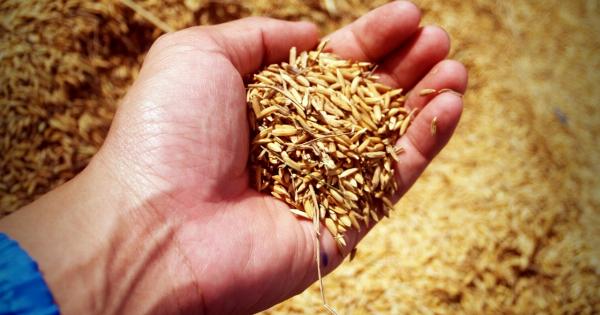Whole grains such as quinoa, brown rice, and oats are highly recommended by health experts and dental professionals alike. Not only do they provide countless health benefits, but they are also excellent for maintaining good oral health.
Incorporating whole grains into your diet can help improve your dental hygiene, prevent gum disease, and promote overall wellness.
Whole Grains Prevent Tooth Decay
Whole grains contain complex carbohydrates, which are broken down slowly by your body. This slow-release process helps prevent sugar spikes in your bloodstream, which can lead to tooth decay.
When you eat refined carbohydrates such as white bread or sugary snacks, the bacteria in your mouth use the sugars to produce acids that erode the enamel on your teeth. Whole grains help prevent this process by providing a steady stream of carbohydrates that do not break down so quickly.
Whole Grains are a Great Source of Fiber
Fiber is an important part of any healthy diet, and whole grains are one of the best sources of fiber. Fiber is great for your teeth because it helps remineralize enamel and reduce the growth of harmful bacteria.
When you eat fiber-rich foods, your saliva production increases, which helps keep your teeth and gums healthy. Whole grains also help keep you fuller for longer, which reduces the amount of snacking and sugary treats you are likely to consume throughout the day.
Whole Grains are Rich in Vitamins and Minerals
Whole grains are packed with important vitamins and minerals such as calcium, magnesium, and vitamin E. These minerals are excellent for oral health because they help strengthen the teeth and enamel.
Calcium is a primary component of tooth structure, so getting enough calcium in your diet is essential for maintaining healthy teeth. Magnesium is also excellent for oral health, as it helps with the absorption of calcium in bones and teeth. Vitamin E is great for overall oral health and has been shown to reduce inflammation in gum tissue, which can prevent gum disease.
Whole Grains Help Promote Good Gut Health
The health of your gut is directly related to your overall health, including your oral health. Whole grains are great for promoting good gut health, which in turn can help improve your oral health.
When your digestive system is working properly, harmful bacteria are kept in check, reducing the likelihood of dental problems such as gum disease and tooth decay.
Whole Grains are Low in Added Sugars
One of the biggest culprits of poor oral health is added sugars. Foods and drinks that are high in added sugars provide the bacteria in your mouth with the fuel they need to produce acids that erode your teeth.
Whole grains, in contrast, are low in added sugars and provide your body with complex carbohydrates that are broken down more slowly. This helps keep your blood sugar levels stable and reduces the risk of tooth decay and gum disease.
Whole Grains are Versatile and Easy to Include in Your Diet
One of the best things about whole grains is that they are versatile and easy to include in your diet. From oatmeal for breakfast to quinoa for lunch and brown rice for dinner, there are countless ways to incorporate whole grains into your meals.
You can also swap out refined carbohydrates for whole grains, such as using whole grain bread instead of white bread or substituting whole grain flour for regular flour in baking recipes.
Conclusion
Whole grains are an excellent addition to any healthy diet and are highly recommended by dental professionals for their oral health benefits.
Incorporating more whole grains into your meals can help prevent tooth decay and gum disease, promote healthy gums and teeth, and improve your overall wellness. With so many delicious and versatile options available, there has never been a better time to start including more whole grains in your diet!.





























